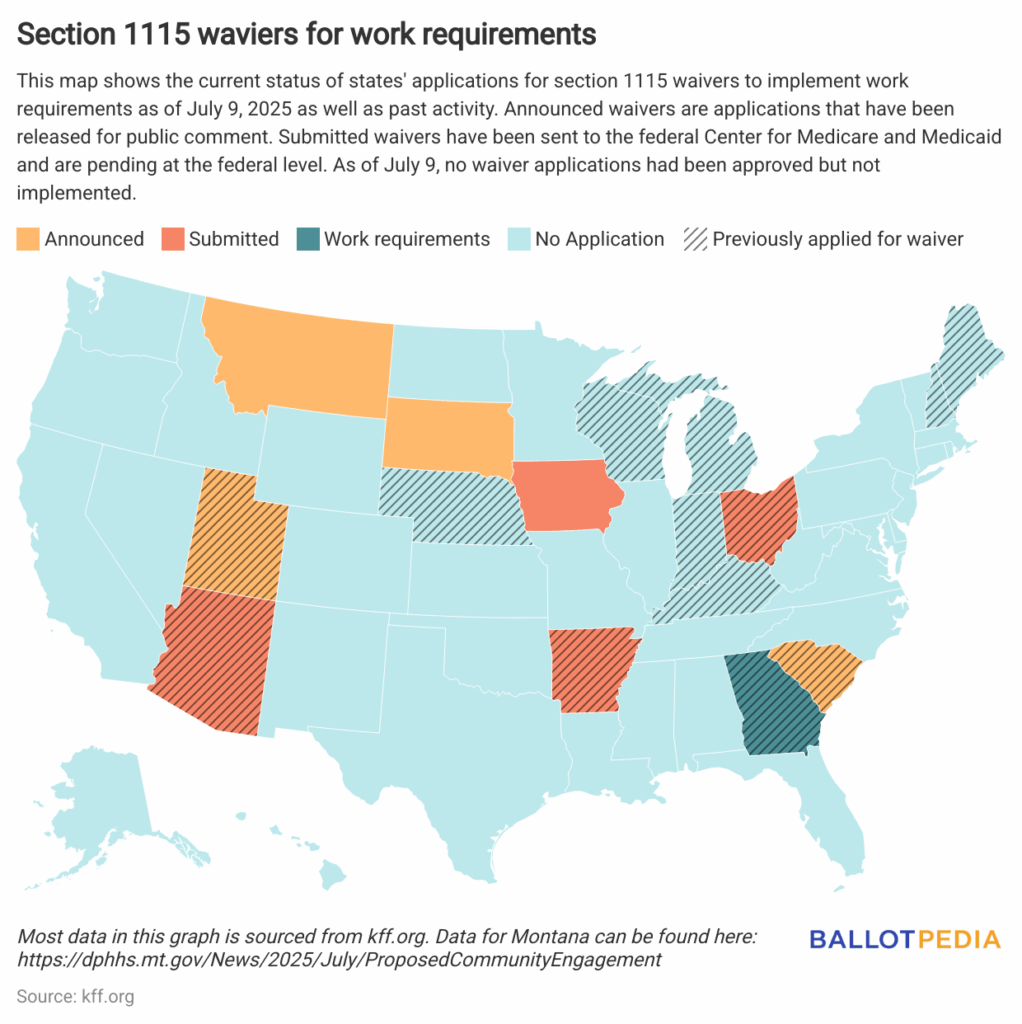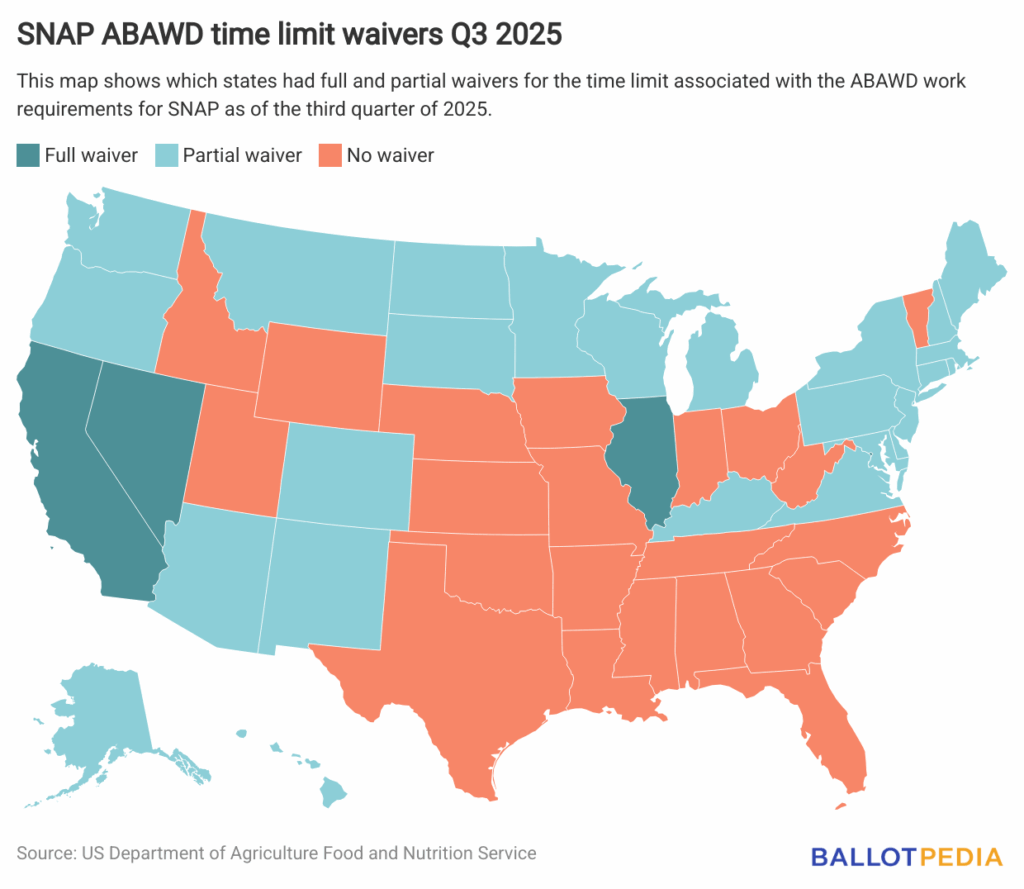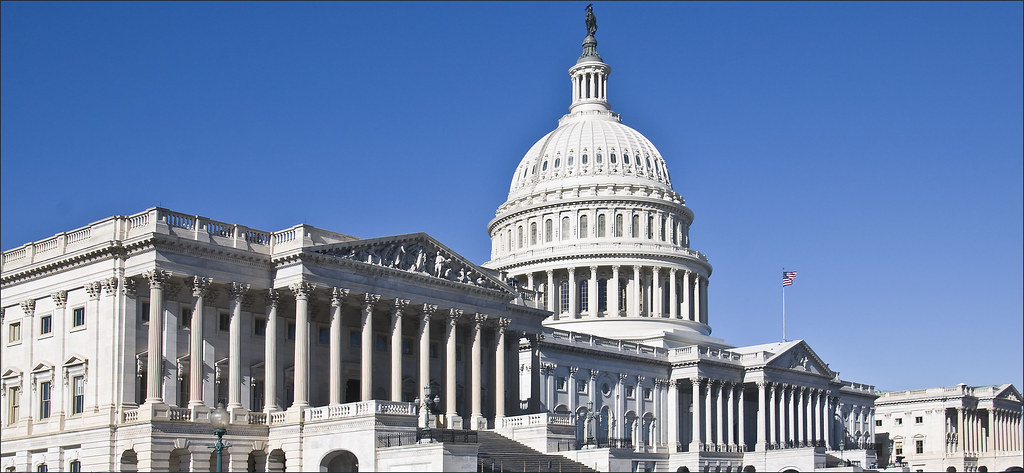President Donald Trump (R) signed the budget reconciliation bill — H.R. 1 — known as the One Big Beautiful Bill Act (OBBBA) into law on July 4. The bill contains provisions requiring states to implement work requirements for Medicaid by Jan. 1, 2027, and alters the exemptions from the able-bodied adults without dependents (ABAWD) work requirements for the Supplemental Nutrition Assistance Program (SNAP).
Medicaid work requirements
The new Medicaid work requirements will require adults ages 19-64 to do at least one of the following to receive benefits:
- enroll in an educational program at least half-time;
- earn monthly income equal to at least 80 hours of work at the federal minimum wage; or
- work, do community service, participate in a work program, or do a combination of these for 80 hours a month.
Non-compliance with the community engagement requirements can result in the denial of an application or disenrollment.
SNAP work requirements
The act also makes the following changes to the exceptions to the ABAWD work requirements under Section 6(o)(3) of the Food and Nutrition Act of 2008:
- Exemptions were removed for individuals who are:
- currently homeless,
- veterans,
- 55 to 64 years of age,
- responsible for a dependent child who is older than 13 years of age,
- 24 years of age or younger who were in foster care under the responsibility of a State on the date of attaining 18 years of age (or such higher age as the State has elected).
- Exemptions were added for individuals who are defined as Indian, Urban Indian, or Californian Indian by the Indian Health Care Improvement Act.
The new list of individuals who are exempt from the ABAWD work requirements is as follows:
- An individual is exempt if they are:
- under 18 or over 65 years of age,
- medically certified as physically or mentally unfit for employment,
- responsible for a dependent child under 14 years of age,
- exempt from general SNAP work requirements,
- pregnant, or
- an Indian, Urban Indian, or Californian Indian as defined by the Indian Health Care Improvement Act.
What are the arguments?
Proponents of work requirements for public assistance argue that they are necessary to ensure that benefits are provided to the truly needy. Secretary of Health and Human Services Robert F. Kennedy Jr., Administrator of the Centers for Medicare & Medicaid Services Mehmet Oz, Secretary of Agriculture Brooke Rollins, and Secretary of Housing and Urban Development Scott Turner co-wrote a New York Times opinion piece, stating that:
- "Millions of able-bodied adults have been added to the rolls in the past decade, primarily as a result of Medicaid expansion. Many of these recipients are working-age individuals without children who might remain on welfare for years. Some of them do not work at all or they work inconsistently throughout the year. The increased share of welfare spending dedicated to able-bodied working-age adults distracts from what should be the focus of these programs: the truly needy."
Opponents of work requirements for public assistance argue that they harm the truly needy by increasing the amount of paperwork and red tape a person must navigate in order to receive benefits. The Center for American Progress argues that the OBBBA will cause benefit losses for Medicaid recipients, increase paperwork, cause rural hospital closures, and have a disproportionate and negative impact on people with disabilities. In this article, they write:
- "Approximately 16 million people could end up uninsured due to the OBBBA, causing massive disruptions in health care. Congress is making historic cuts to essential services to give tax cuts to the wealthy. And disabled people and other vulnerable communities will likely bear the greatest burden."
Background
Until the OBBBA's Medicaid work requirements take effect in 2027, there are no federally required work requirements for Medicaid. States have applied for section 1115 waivers that allow them to implement work requirements. The map below shows states that have applied for this waiver in the past along with current waiver data as of July 9. Georgia is currently the only state with work requirements for Medicaid.

States can apply for waivers to the SNAP ABAWD work requirement time limit. This time limit restricts ABAWDs who are non-compliant with the SNAP work requirements to 3 months of benefits in any 3-year period. If the unemployment rate in a state is over 10%, states can apply for a waiver exempting all or portions of the state from the SNAP work requirement time limit. The map below shows which states had active time limit waivers for the third quarter of 2025.




